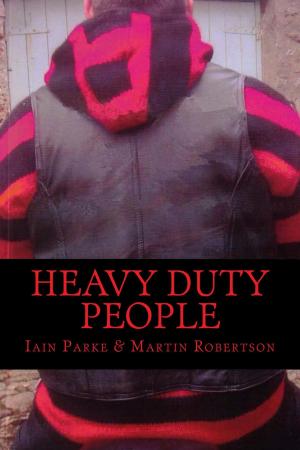| Author: | Helen Gardener | ISBN: | 1230000231840 |
| Publisher: | R. F. Fenno & Company | Publication: | April 9, 2014 |
| Imprint: | Language: | English |
| Author: | Helen Gardener |
| ISBN: | 1230000231840 |
| Publisher: | R. F. Fenno & Company |
| Publication: | April 9, 2014 |
| Imprint: | |
| Language: | English |
An Unoficial Patriot
Griffith Davenport was a clergyman. I tell you this at the outset, so that you may be prepared to take sides with or against him, as is your trend and temperament. Perhaps, too, it is just as well for me to make another statement, which shall count in his favor or to his disadvantage, according to your own prejudices or convictions. He was a Southern man. He had been a slave-owner, and now he was neither the one nor the other. But in connection with, and in explanation of these last-mentioned facts, I may say that he had been a law-breaker in his native State, and was, at the very time of which I tell you, evading the law in the State of his adoption.
Both of these facts were the direct results of having been born to slave-ownership, and, at the same time, with a conscience which was of, and in harmony with, a different latitude and heredity. I trust that you will not infer from this last remark that I am of the opinion that the conscience of the Northern habitant is of more delicate fiber than is that of his Southern brother, who is of the same mental and social grade; for nothing could be farther from either the facts or my intentions herein. But that it is of a different type and trend is equally beyond controversy. The prickings of the one are as regular and as incessant, no doubt, as are those of the other; but the stimulating causes have different roots. Perhaps, too, it may sound strange to you to hear of one who can be spoken of as having a somewhat sensitive conscience and at the same time as being both a law-breaker and a law-evader. But certain it is, that with a less primitive conception of laws and of men, you will be able to adjust, to a nicety, the ideas therein conveyed, and also to realize how true it is that times, conditions, and environment sometimes determine the standard by which the rightfulness or wrongfulness of conduct is measured, and that it is quite within the possibilities for a man to be at once a law-breaker and a good man, or a law-keeper and a bad one.
But I am not intending to warp your judgment in advance, and you are to remember that whatever my opinion of the quality of the Rev. Griffith Davenport's conduct may be, there is another side to the matter, and that I shall not take it greatly to heart if you should find yourself on the other side.
But if, as I have sometimes heard readers say—who looked upon themselves as of a somewhat superior order—you do not take an interest in people who have placed themselves outside of the beaten pathway of legal regularity, it will be just as well for you to lay this little story aside now, for, as I have said, it is a story of a clergyman, a slave-holder, a law-breaker, and a law-evader, which, I admit, does not at the first blush present a picture to the mind of a person in whom you and I, my lofty and immaculate friend, would be greatly interested, or with whom we would care to associate for any protracted period. Still, I intend to tell the story, and in order to give you a perfectly clear idea of how all the more important events in this curiously complicated life came about, I shall be compelled to go back to the boyhood of young Davenport, so that you may catch a glimpse of the life and training, which were a prelude and a preparation—if you do not wish to look upon them as exactly a justification—of and for the later years of the life, which experienced such strange trials, complications and vicissitudes.
An Unoficial Patriot
Griffith Davenport was a clergyman. I tell you this at the outset, so that you may be prepared to take sides with or against him, as is your trend and temperament. Perhaps, too, it is just as well for me to make another statement, which shall count in his favor or to his disadvantage, according to your own prejudices or convictions. He was a Southern man. He had been a slave-owner, and now he was neither the one nor the other. But in connection with, and in explanation of these last-mentioned facts, I may say that he had been a law-breaker in his native State, and was, at the very time of which I tell you, evading the law in the State of his adoption.
Both of these facts were the direct results of having been born to slave-ownership, and, at the same time, with a conscience which was of, and in harmony with, a different latitude and heredity. I trust that you will not infer from this last remark that I am of the opinion that the conscience of the Northern habitant is of more delicate fiber than is that of his Southern brother, who is of the same mental and social grade; for nothing could be farther from either the facts or my intentions herein. But that it is of a different type and trend is equally beyond controversy. The prickings of the one are as regular and as incessant, no doubt, as are those of the other; but the stimulating causes have different roots. Perhaps, too, it may sound strange to you to hear of one who can be spoken of as having a somewhat sensitive conscience and at the same time as being both a law-breaker and a law-evader. But certain it is, that with a less primitive conception of laws and of men, you will be able to adjust, to a nicety, the ideas therein conveyed, and also to realize how true it is that times, conditions, and environment sometimes determine the standard by which the rightfulness or wrongfulness of conduct is measured, and that it is quite within the possibilities for a man to be at once a law-breaker and a good man, or a law-keeper and a bad one.
But I am not intending to warp your judgment in advance, and you are to remember that whatever my opinion of the quality of the Rev. Griffith Davenport's conduct may be, there is another side to the matter, and that I shall not take it greatly to heart if you should find yourself on the other side.
But if, as I have sometimes heard readers say—who looked upon themselves as of a somewhat superior order—you do not take an interest in people who have placed themselves outside of the beaten pathway of legal regularity, it will be just as well for you to lay this little story aside now, for, as I have said, it is a story of a clergyman, a slave-holder, a law-breaker, and a law-evader, which, I admit, does not at the first blush present a picture to the mind of a person in whom you and I, my lofty and immaculate friend, would be greatly interested, or with whom we would care to associate for any protracted period. Still, I intend to tell the story, and in order to give you a perfectly clear idea of how all the more important events in this curiously complicated life came about, I shall be compelled to go back to the boyhood of young Davenport, so that you may catch a glimpse of the life and training, which were a prelude and a preparation—if you do not wish to look upon them as exactly a justification—of and for the later years of the life, which experienced such strange trials, complications and vicissitudes.















